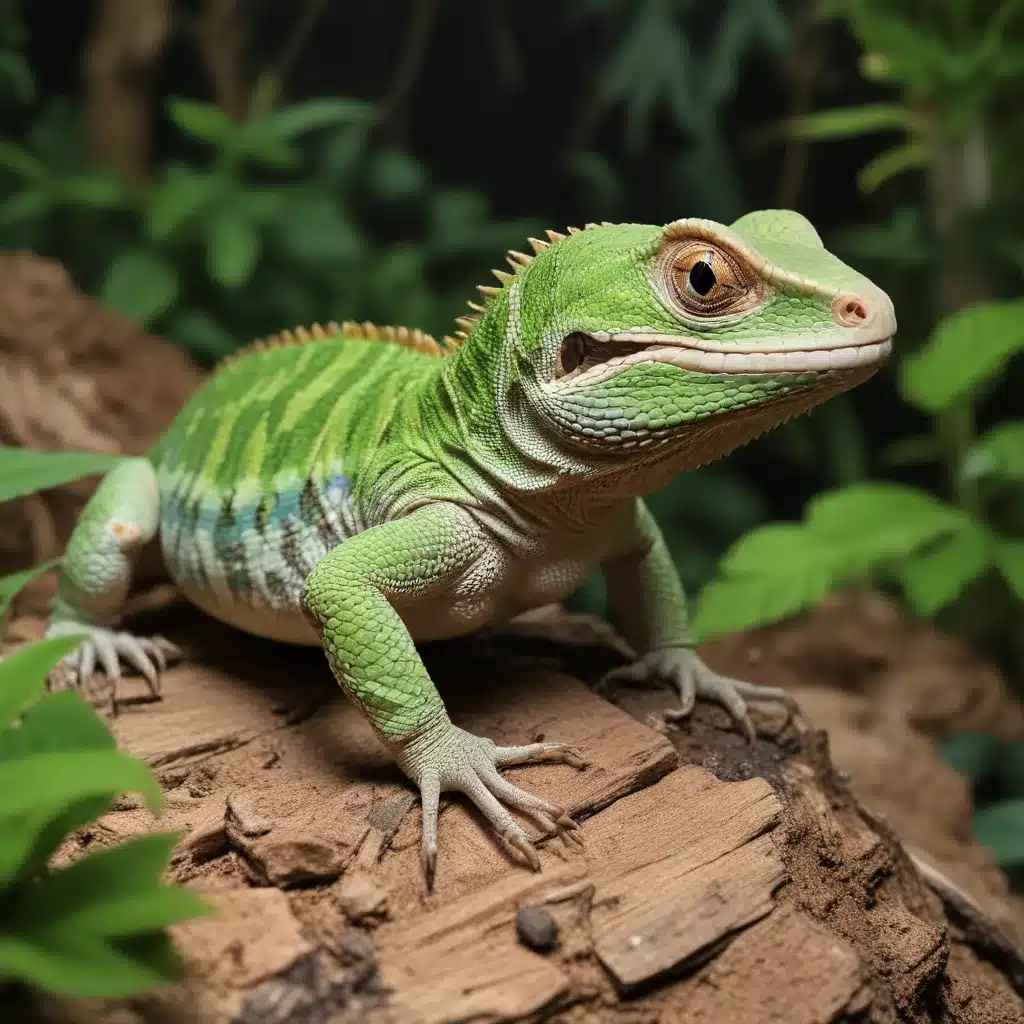
Unraveling the Mysteries of Reptile Habitats
Crafting the perfect habitat for exotic reptiles is a delicate balance of art and science. These captivating creatures, hailing from diverse environments around the world, require meticulous attention to their unique needs to thrive in captivity. From precisely controlling temperature and humidity to recreating natural lighting conditions, building a thriving reptile sanctuary demands a deep understanding of each species’ specific requirements.
Reptiles and amphibians inhabit a wide range of environments, each presenting its own set of challenges and opportunities when it comes to exposure to sunlight. This variation in sunlight exposure is critical for their thermoregulation, natural behaviors, and essential physiological processes, including the synthesis of vitamin D3, calcium metabolism, immune system function, and overall health and vitality.
Maintaining optimal environmental conditions is the cornerstone of successful reptile husbandry. Temperature and humidity levels must be carefully monitored and adjusted to mimic the species’ natural habitat. Improper temperature or humidity can lead to a host of health issues, from respiratory infections to metabolic disorders. Crafting the perfect microclimate for your reptile’s well-being requires a thoughtful approach and the right equipment, such as thermostats, hygrometers, and specialized lighting.
Decoding Reptile Breeding and Raising Hatchlings
Breeding exotic reptiles is a rewarding yet complex endeavor, requiring a deep understanding of each species’ unique reproductive behaviors and needs. From providing the right environmental cues to ensuring proper nutrition, a successful breeding program demands meticulous planning and execution.
One of the key considerations in reptile breeding is the concept of photoperiod, or the daily cycle of light and dark. Many reptile species rely on subtle changes in daylight duration and intensity to trigger their breeding instincts. Recreating these natural light cycles within the enclosure is essential for stimulating mating behaviors and successful egg production.
Incubating reptile eggs also requires a delicate balance of temperature and humidity. Improper incubation can lead to developmental abnormalities or even complete failure of the eggs to hatch. Breeders must carefully monitor and adjust the conditions within the incubator to mimic the natural environment and ensure the healthy development of the hatchlings.
Raising young reptiles presents its own set of challenges, as their nutritional and care requirements often differ from their adult counterparts. Providing the right balance of supplements, appropriate prey items, and a suitable habitat is crucial for the growth and well-being of hatchlings and juveniles. Experienced breeders must stay vigilant, closely observing their young reptiles and making adjustments to their care as needed.
Navigating the Legal Landscape of Exotic Reptile Sales
The sale and ownership of exotic reptiles is a highly regulated space, with a patchwork of federal, state, and local laws governing the trade. Responsible reptile enthusiasts must navigate this legal landscape with care to ensure compliance and avoid potential pitfalls.
At the federal level, the United States Fish and Wildlife Service (USFWS) oversees the importation and interstate transportation of certain reptile species, often those considered threatened or endangered. Breeders and sellers must obtain the necessary permits and adhere to strict regulations to legally acquire, breed, and transport these regulated reptiles.
On the state level, regulations can vary widely, with some states imposing stricter requirements or even outright bans on the possession of certain reptile species. Prospective reptile owners must familiarize themselves with the specific laws in their state and local jurisdictions to ensure they are in full compliance.
In addition to legal requirements, responsible reptile sales should prioritize the welfare of the animals. Reputable breeders and sellers will provide detailed care information, offer a health guarantee, and ensure the proper handling and transport of the reptiles to their new homes. By prioritizing the well-being of the animals and adhering to all legal guidelines, the exotic reptile trade can continue to thrive while upholding the highest standards of animal welfare.
Balancing Conservation and Responsible Captive Breeding
The exotic reptile industry plays a delicate and multifaceted role in the conservation of these remarkable creatures. On one hand, the captive breeding of certain species can help offset the pressure on wild populations, providing a sustainable source of animals for the pet trade and supporting research and educational initiatives. On the other hand, irresponsible or unregulated collection of wild reptiles can have devastating impacts on fragile ecosystems and endangered species.
Responsible breeders and reptile enthusiasts must strike a careful balance between the captive propagation of exotic species and the preservation of their natural habitats. This often involves collaborating with conservation organizations, adhering to strict breeding protocols, and educating the public on the importance of responsible reptile ownership.
By promoting ethical and sustainable practices, the reptile community can play a vital role in the long-term survival of these incredible animals. Through continued research, habitat restoration, and public outreach, we can ensure that future generations will be able to marvel at the diversity and beauty of the reptile world.
Forging a Sustainable Future for Exotic Reptiles
As the demand for exotic reptiles continues to grow, it is incumbent upon all stakeholders – breeders, sellers, and enthusiasts – to prioritize the well-being of these animals and the long-term sustainability of the industry. By adhering to the highest standards of reptile care, breeding techniques, and legal compliance, we can cultivate a thriving and responsible exotic reptile community.
At the heart of this endeavor lies a deep respect for the natural world and a commitment to the preservation of reptile biodiversity. By working closely with conservation organizations, supporting research initiatives, and educating the public, we can foster a greater appreciation for these remarkable creatures and ensure their continued presence on our planet.
Through a collaborative effort, the exotic reptile industry can become a beacon of responsible stewardship, where the needs of the animals and the health of their ecosystems take precedence. By embracing this ethos, we can build a future where the beauty and wonder of exotic reptiles are celebrated and protected for generations to come.

